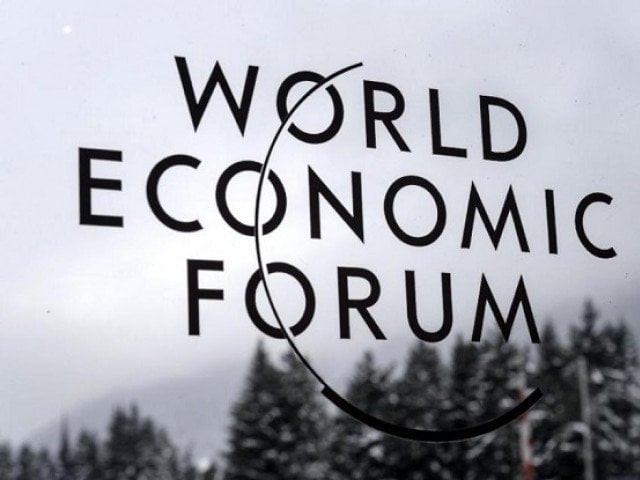WEF report — a timely warning
World Economic Forum’s Global Competitiveness Report 2016 has ranked Pakistan 126th — 14th from the bottom

World Economic Forum’s Global Competitiveness Report 2016 has ranked Pakistan 126th — 14th from the bottom. PHOTO: AFP

While there is not much of a difference in the two rankings Pakistan was given in two successive years, what should be a matter of greater concern for both the government and the nation is that we seem not to be making any meaningful efforts to at least graduate out of the bottom 20. And had it not been for the official data that seems to have been used as the single source by the authors of the Report, we would have been perhaps ranked somewhere in the middle of the bottom 10. Since the official claims about our budget deficits are still being debated, one would like to take the so-called 28-rank jump on measures of the government’s budget deficit with a thick grain of salt.
On the same grounds, one would feel highly sceptical about the leap of 56 places in the ranking for quality of higher education. It is very difficult to swallow this leap in view of the mess that is currently prevalent in our higher education sector. In addition, we have consistently failed to reform the Federal Board of Revenue (FBR). Anyone who tries to put it right finds himself on the roadside, sometimes literally. The FBR has failed year after year to mobilise the resources that can legitimately be raised without much hassle, while the lifestyle of its members is seen to be visibly improving with the passage of each year. Since painting a rosy picture of the performance of the FBR would have undermined the chances of preparing a credible case for concessional multi- and bilateral foreign assistance, the official blame seems to have been passed on to customs on the excuse that the decline in world oil prices had eroded the income from import duties.
The most lax sector of the economy in the country is its regulatory mechanism. Perhaps, misunderstanding this laxness to mean that the government is opening up the economy, the authors of the WEF report have shown that there has been improvement in the ranking for government regulations, from 103 in 2014 to 86 in 2015. But this again seems a misleading assessment as the IMF itself has been consistently goading the government to liberate the State Bank of Pakistan, the regulator of the financial sector, from government control. And of course, worryingly, the performance of the Competition Commission of Pakistan (CCP) has significantly deteriorated, slipping from 85 in 2014 to 106 in 2015.
One cannot but agree with the report that other regulatory bodies have also shown weak governance indicators. The Auditor General of Pakistan, for instance, has gone from the rank of 90 in the last year to 117 in 2015. Similarly, the Securities and Exchange Commission of Pakistan has tumbled to 93 compared to its rank of 71 in 2014. Business managers surveyed by the report’s authors very rightly cited corruption, tax rates, inflation, access to financing, inefficient government bureaucracy and policy instability as the other most problematic factors. In addition, the report has identified the following as well in the same category: government instability, inadequate supply of infrastructure, inadequately educated workforce, crime and theft, poor work ethic of the labour force, foreign currency regulations, complexity of tax regulations, restrictive labour regulations, insufficient capacity to innovate and poor public health. The government needs to tackle all these obstacles simultaneously on a war footing. The need is to create the right kind of economic environment that would promote inclusive growth offering equal opportunities to all citizens.
Published in The Express Tribune, October 5th, 2015.
Like Opinion & Editorial on Facebook, follow @ETOpEd on Twitter to receive all updates on all our daily pieces.















COMMENTS
Comments are moderated and generally will be posted if they are on-topic and not abusive.
For more information, please see our Comments FAQ